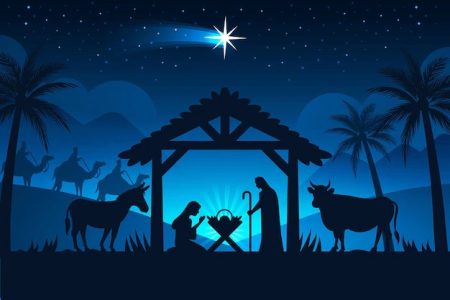Sermons by Guest Martin Boutros (Page 2)
Names of God: Jehovah Raah, The Lord our Shepherd
The Bible speaks of God as the Shepherd of his people. The New Testament presents Jesus as the Good Shepherd, who protects the lives of his sheep by forfeiting his own life. When you pray to the Lord your Shepherd, you are praying to the One who watches over you day and night, feeding you and leading you safely on the path of righteousness.
Names of God: Immanuel: God, God with us.
https://www.youtube.com/watch?v=BWU2_oFBLhEImmanuel means “God with us.” God told King Ahaz (Is 7:14), through Isaiah the prophet, that a mother would bear a son and that people would call Him Immanuel. That child would be a sign of God’s presence with His people. The baby Mary was to bear on that first Christmas, Jesu, was called Immanuel. In everything He did, Jesus showed ‘God with us.’ Before Jesus ascended to heaven, He gave a promise that He would remain with His followers…
Names of God: Jehovah Nissi, The Lord Our Banner
This week we examine Jehovah Nissi – The Lord our Banner. Nes (nês), from which Nissi is derived, means “banner” in Hebrew. In Exodus 17:15, Moses, recognizing that the Lord was Israel’s banner under which they defeated the Amalekites, builds an altar named Jehovah Nissi (the Lord our Banner). Nes is sometimes translated as a pole with an insignia attached. In battle, opposing nations would fly their flag on a pole at each of their respective front lines. This was…
Names of God: El Shaddai, Almighty God
Though often associated with the military might of God, “El Shaddai” conveys more than the raw power of God alone. The root “shad” means “breast” and of the six times that the name “El Shaddai” appears in the Book of Genesis, five are in connection with fertility blessings for the patriarchs. Biblical scholar David Biale argues that this original understanding of “Shaddai” as related to fertility and nourishment was forgotten by the later authors who understood it as being related…
Names of God: Elohim, the Powerful One
As a general rule, when our English scripture translations use the word “God” the Hebrew words behind it is either “El” or “Elohim.” This is the most general name for God – God’s surname! It means the almighty one, the powerful one, the worshipful one, the supreme being. It is significant that Elohim is the plural form of El. Yet it is used as if it were singular when it refers to the God of the Hebrews. Inherent in this…
Names of God: Introduction
One of the great questions that comes to us is: “Is there really a God; a Being of some sort beyond the created order who creates and somehow oversees reality?” And if there is such a Being (or beings); what are they like? Can they be known and do they in some way engage with creation? And if there is no God or gods, how do we best make sense of our experience of the world? How do we navigate…
The First Habit: BLESS
Adopt the practice of regularly blessing at least three people each week, at least one of whom is not in our church, through words of encouragement and affirmation, acts of service, and thoughtful gifts. We do not bless people in order to convert them; rather we bless people because that is what we do. We were put here to bless the nations.
Living Questionable Lives
If we’re trying to live questionable lives, we need to become a godly, intriguing, socially adventurous, joyous presence in the lives of others.
Good News that Changes Things
If your neighbours did an analysis of your life, what would they learn about the kingdom? — Michael Frost
- 1
- 2








